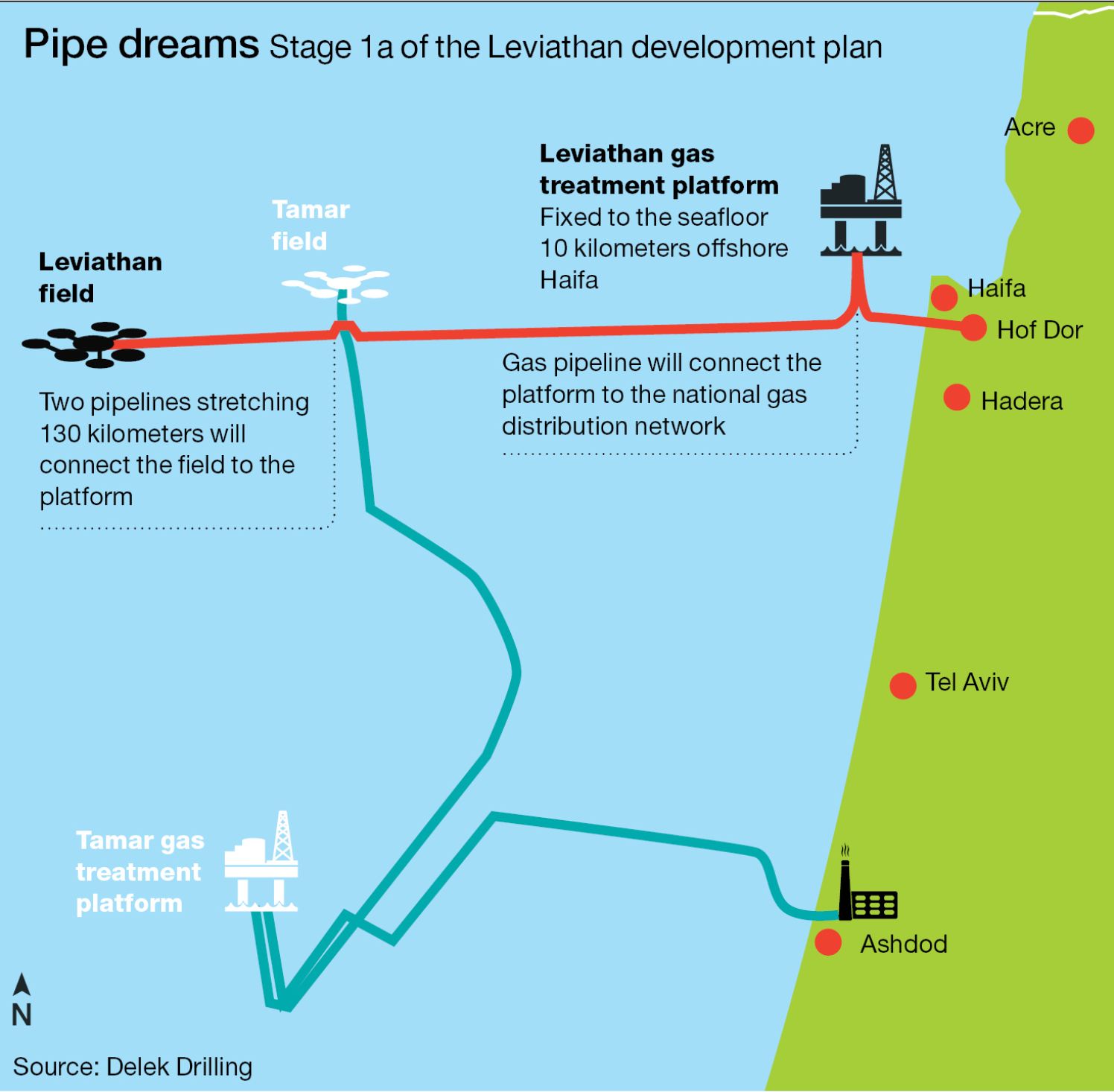Under the Sea: Antiquities Make Way for Israel’s Leviathan Pipeline
By Rinat Harash, Reuters
DOR BEACH, Israel – Underwater archaeologists have been scouring the seabed where a gas pipeline is being built off Israel’s coast in a bid to preserve relics near a 5,000-year-old port that once was a key trade hub for the Mediterranean’s ancient civilizations.
The pipeline from the deep-sea Leviathan gas field that is due to begin production late next year comes ashore near Dor Beach in northern Israel, a popular spot among Israeli sunbathers.
It is also the site of the ancient port of Dor, where hidden in the seabed lie the vestiges of marine traders throughout the ages – from the Phoenicians to the Romans.
To minimize damage to such relics, the Israel Antiquities Authority has been working over the past year with the Leviathan field’s operator, Texas-based Noble Energy.
A team spent weeks scuba diving in the warm crystal-clear water off the beach, dispersing silt to uncover ancient artifacts. A remote-operated robot was used for searches in deeper water.
They found earthenware jugs, anchors and the remains of wrecked ships, setting new guidelines for similar future projects.
“There has been unprecedented cooperation to protect the antiquities and the cultural assets,” Yaakov Sharvit, director of the Marine Archaeology Unit of the Israel Antiquities Authority, told Reuters TV.
Sharvit said Noble financed most of the archaeological surveys and a large research ship to help extract ancient objects along the pipeline’s route.
The pipeline is being buried 15-20 meters below the seabed to minimize any effect on the surroundings.
Leviathan was discovered in 2010 about 120 km (75 miles) off Israel’s coast. Its development will be the largest energy project in Israel’s history.
“What is unique here in Israel is the ancient place that we’re operating,” said Binyamin Zomer, vice president for regional affairs for Noble Energy.
“We work very closely with the Antiquities Authority here in Israel to make sure that should we discover such finds, we first of all avoid causing harm to those areas and secondly, to make sure that they are aware of the resources and potential finds that they have.”
His company says the project will not harm the environment and will replace less healthy fossil fuels. But some local environmentalists and residents oppose the plan, which along with the pipeline includes a towering production platform to be built just 10 km from shore.
Local resident and marine archaeologist Kurt Raveh, who has been excavating at Dor for decades and founded its diving club, thinks the survey being done is insufficient. He worries the area is at risk from potential pipeline leaks.
“We have so many treasures and old shipwrecks and things like that, we should get them out of the water before we can’t enter the water anymore,” he said.
Related News
Related News

- Keystone Oil Pipeline Resumes Operations After Temporary Shutdown
- Freeport LNG Plant Runs Near Zero Consumption for Fifth Day
- Biden Administration Buys Oil for Emergency Reserve Above Target Price
- Mexico Seizes Air Liquide's Hydrogen Plant at Pemex Refinery
- Enbridge to Invest $500 Million in Pipeline Assets, Including Expansion of 850-Mile Gray Oak Pipeline
- Enbridge Receives Approval to Begin Service on Louisiana Venice Gas Pipeline Project
- U.S. to Acquire 3 Million Barrels of Oil for Emergency Reserve in September
- AG&P LNG Acquires 49% Stake in Vietnam's Cai Mep LNG Terminal
- BP's Carbon Emissions Increase in 2023, Ending Decline Since 2019
- Texas Sues EPA Over Methane Emission Rules for Oil and Gas Sector





Comments